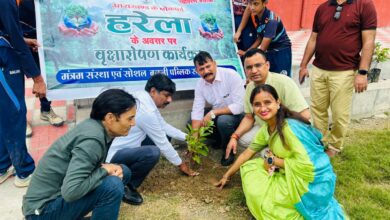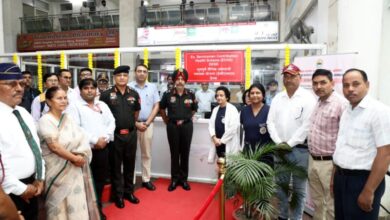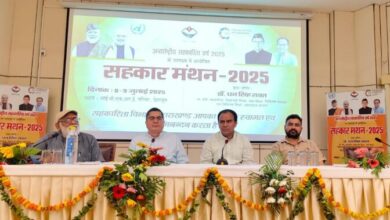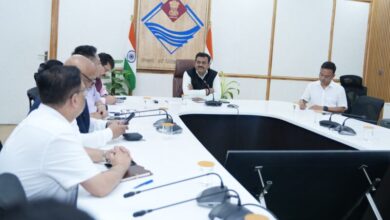
Dehradun Project Utkarsh: Smart Schools Initiative Gains Momentum
Dehradun, June 12, 2025 – Under the visionary leadership of District Magistrate (DM) Savin Bansal, the ‘Project Utkarsh’ initiative to modernize government schools in Dehradun district is progressing rapidly. As part of this, orders for 884 large LED TVs for 168 secondary schools have been issued via the GeM (Government e-Marketplace) portal, and bids have also been uploaded.
₹6 Crore Fund Mobilized for Modern Facilities
With the help of Mineral Trust Fund, District Plan, and CSR funds, the DM has mobilized ₹6 crore to equip government schools with modern infrastructure. Launched under the guidance of the Chief Minister, ‘Project Utkarsh’ is not merely an announcement but a transformative movement to bring government school students on par with those from private schools in terms of confidence and facilities.
Key Achievements of Project Utkarsh:
-
Previous Experience: DM Savin Bansal successfully implemented similar smart school projects in Nainital and Almora.
-
Foundational Infrastructure Already Provided: Schools are already equipped with whiteboards, classroom lights, outdoor sports facilities, kitchens, electricity, and libraries. Now, LED TVs are being installed in every classroom.
-
Organizational Support:
-
ONGC provided furniture, ensuring all schools are fully furnished.
-
HUDCO helped in setting up LED screens and energy-efficient bulbs.
-
Promoting Digital Education
-
DM Bansal allocated ₹3.67 crore from the Mineral Trust for LED screens in classrooms.
-
The Education Department has placed the purchase order for 884 LED screens via GeM.
-
This move aims to enhance learning through digital classrooms, especially for students in government schools.
Additional Support for Basic Amenities
-
An additional ₹1 crore has been earmarked to enhance:
-
Whiteboards,
-
Two LED lights per classroom,
-
Furniture, and
-
Outdoor sports infrastructure.
-
DM Bansal also emphasized:
-
Regular availability of electricity, drinking water, and sanitation.
-
Maintenance and hygiene of water tanks.
-
Provision of nutritious meals in schools.
Holistic Development Focus
‘Project Utkarsh’ goes beyond academics. It promotes overall development of children by:
-
Mandating the availability of newspapers, magazines, dictionaries, and biographies of great personalities in every school to inspire students.
The project is revolutionizing education standards in government schools and preparing students for future challenges through an enriched learning environment.
Highlights at a Glance:
| Feature | Details |
|---|---|
| LED TV Orders | 884 LED TVs for 168 schools ordered via GeM |
| Total Fund Mobilized | ₹6 crore from Mineral Trust, District Plan, and CSR |
| Digital Education Support | ₹3.67 crore for LED screens from Mineral Trust |
| Additional Infrastructure | ₹1 crore for boards, lighting, sports, and furniture |
| NGO/Corporate Support | ONGC (furniture), HUDCO (LED screens, bulbs) |
| Focus on Holistic Growth | Reading materials, sanitation, sports, nutrition |
| Past Implementation | Similar model successful in Nainital and Almora |




